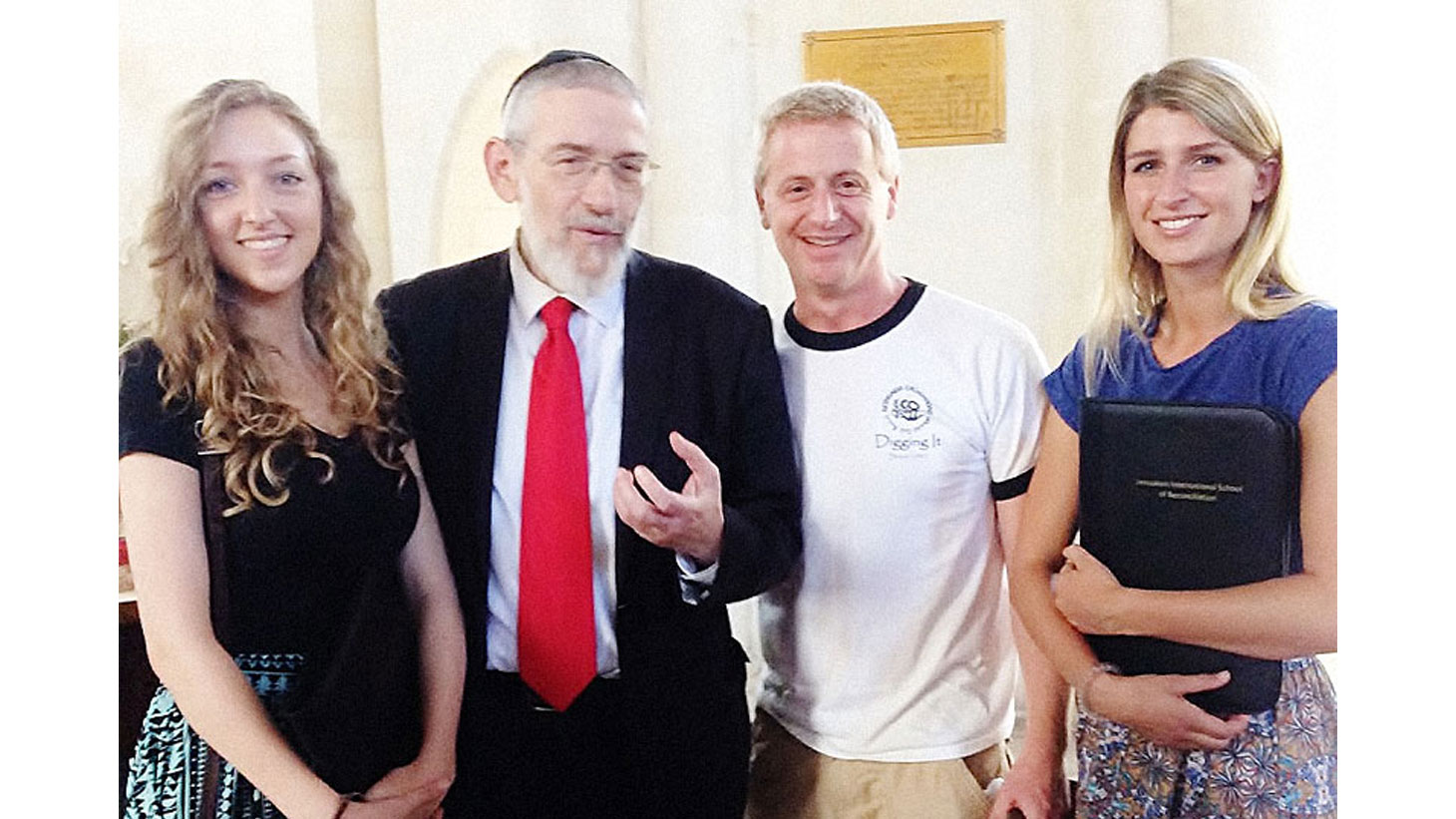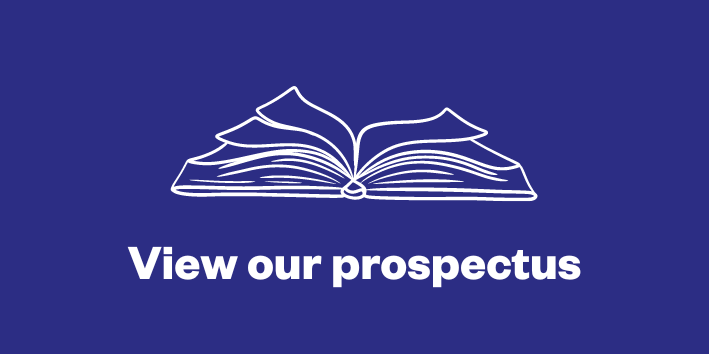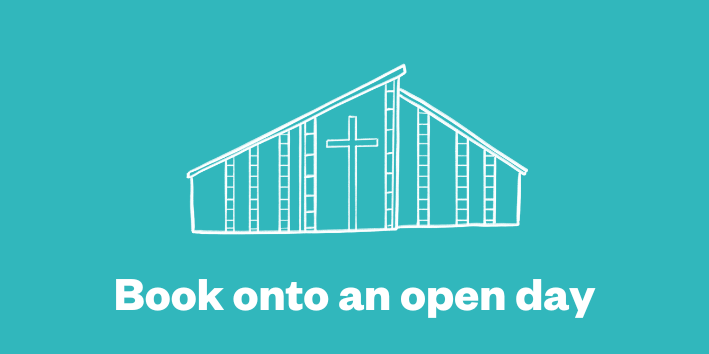Above: With Rabbi Melchior, Chief Rabbi of Norway engaged in peace activities with Arab groups in Israel. (Left to right – Anna Trehern, Rabbi Melchior, Chris Sinkinson, Anna Gibbons)
Chris and our students were predominantly in the Old City of Jerusalem, hearing from various speakers, learning more about reconciliation amongst the conflict in the Middle East. They also made visits elsewhere, such as to the Ministry of Foreign Affairs, Samaria, Palestine and Bethlehem.
Sarah White caught up with the two Anna’s to hear about their trip and what they took away from the experience.
SW: Did you have a sense of anticipation on the plane?
Anna Trehern (AT): I knew that God wanted me to be at this conference but I didn’t know why, so I was very excited to see His plans unfold. I also love travelling so I was excited to experience a new culture and simply learn more.
Anna Gibbons (AG): I was most excited about experiencing another culture, the people I was going to meet on the conference, and the things we were going to learn. I was probably most nervous about the “unknown” as I’d never been to the Middle East and I was cautious about how tense it may feel there, however I felt perfectly safe.
SW: When you arrived, what was the first thing that you noticed about the culture?
AT: One of the first things that I noticed was how rich the culture is in many ways. It was really interesting seeing devout Muslims, Jews and Christians in such a small vicinity with such a wealth of religious imagery and icons. I also noticed (which I loved) the “hussle and bussle” of the old city; the market streets were full of bright colours and people milling about. It was a great atmosphere to be in!
AG: In Jerusalem specifically it’s very religious with the clothing that people would wear in accordance with their religion and also seeing many religious shrines and churches and also hearing the call to prayer at ridiculous hours of the morning and then throughout the day.
SW: What was the most important thing the conference taught you?
AT: It’s difficult to pick out a single aspect of the conference—it taught me so much! Through hearing so many viewpoints, I have come to understand how complex the task of reconciliation is. It reminded me yet again of what we as human beings are capable of; both good and bad. One thing that really stood out to me was that there is so much fear towards conflict but as one of the speakers reminded us, “Perfect love casts out fear” (1 John 4:18). It sounds cliché but we need to withhold a lot of our judgements and show love to places of conflict, not just to the side that we may empathise with, but also to those whose opinions or actions we have come to fear.
AG: Reconciliation is immensely confusing. It’s very complicated in the Middle East and I found the more I learnt the more complicated it became. However, what I really did learn is that there is no reconciliation without love; we have to love people even if we don’t agree with them. We still have to show them love because it is a powerful thing. During one of the talks this was said and it really came to life for me. If we love our enemies there is no longer fear because there is no fear in perfect love.
SW: Any particular highlight you would like to share?
AT: One highlight for me was hearing one of the speakers talk about the challenging work that she is doing out in Iraq with refugees. I’m very passionate about working with those victimised by sex slavery and human trafficking, so hearing her share some of the testimonies of those who has experienced this was extremely powerful for me. Although it was horrible to learn of some of the difficulties that people are facing, I found it really encouraging to know that there are those who are risking their lives to help and serve others—there is hope!
SW: What was the biggest challenge for you whilst in Israel?
AT: I’d say my biggest challenge was knowing what to do with this opportunity and the information that I had been given. How does a 20-year-old western woman contribute to the process of reconciliation amongst conflict in the Middle East? I’m still figuring out the answer to this, but I know that I am able to share what I’ve learnt and the stories that I’ve been told. I can pray for peace and I can encourage others to do the same.
AG: There were many challenges for me which pushed me out of my comfort zone, one of which was actually just going to Israel itself. Challenges such as adapting to the culture, the heat, the haggling, the food; it was just all very different. Listening to some of the stories of persecution and conflict could be quite hard to hear; taking that all in, retaining and processing that information was a challenge.
SW: What can our readers be praying for?
AT: Please remember to pray for the protection of those not just in the Middle East, but across the world who are risking their lives in conflict areas to serve others.
AG: Prayer for the Middle East that God would soften them towards one another and that He would guide their communication and negotiations. Please also pray for Canon Andrew White; that God would continue to keep him strong and healthy and continue to guide him as he strives for reconciliation. He’s doing a wonderful job over there.




